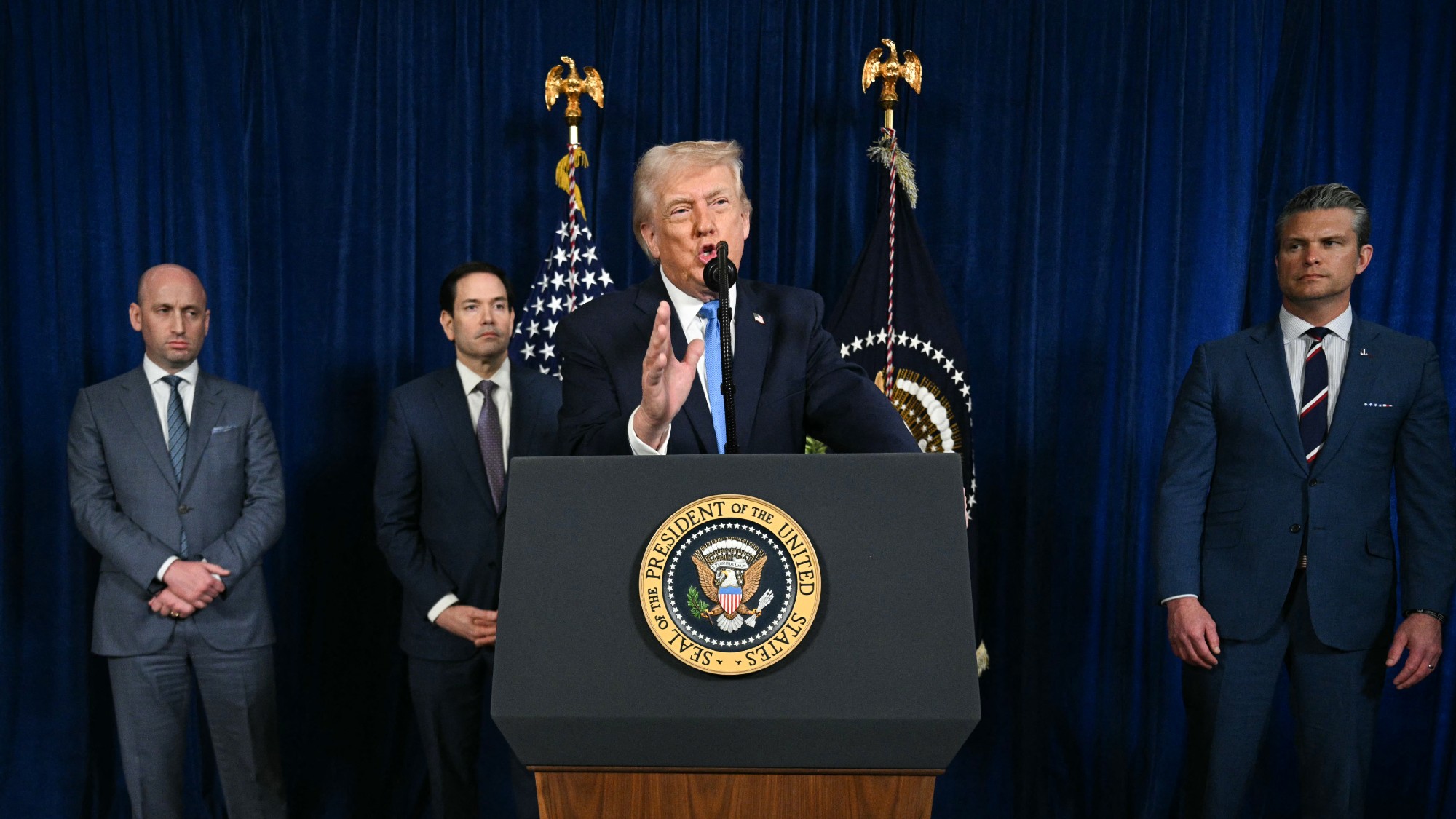You're paying Obama to party like a rockstar


A free daily email with the biggest news stories of the day – and the best features from TheWeek.com
You are now subscribed
Your newsletter sign-up was successful
Over the weekend, former President Barack Obama announced plans for a lavish birthday party at his Martha's Vineyard estate. The bash will attract around 500 guests, to be entertained by the rock band Pearl Jam, and served by a staff of 200.
The announcement makes a mockery of heightened COVID-19 restrictions being imposed around the country. Even if the outdoor event is safe, the prospect of well-connected Democrats partying while ordinary Americans contemplate rising hospitalizations, mask mandates, and even renewed lockdowns is unseemly.
Public health hypocrisy isn't the only problem. Obama is just the most recent president who adopted a plutocratic lifestyle after leaving office, partly at public expense. Former presidents enjoy benefits and subsidies worth millions of dollar annually under the Former Presidents Acts.
The Week
Escape your echo chamber. Get the facts behind the news, plus analysis from multiple perspectives.

Sign up for The Week's Free Newsletters
From our morning news briefing to a weekly Good News Newsletter, get the best of The Week delivered directly to your inbox.
From our morning news briefing to a weekly Good News Newsletter, get the best of The Week delivered directly to your inbox.
It's always been a bit fraudulent. The FPA was passed in 1958, partly due to the influence of Harry Truman. Truman claimed he was broke after decades of public life, a claim echoed in David McCullough's bestselling biography. But new scholarship finds that Truman was very rich by the standards of his time. In addition to a fortune earned by sale of his memoirs, Truman may have embezzled funds from the White House expense account.
In addition to Truman's lobbying, the FPA was passed because some earlier presidents struggled to earn a living after leaving office. American history is haunted by the image of Ulysses S. Grant, furiously composing his bestselling (and brilliant) memoirs as he was dying of cancer. It's reasonable to provide ex-presidents a pension. And it's probably necessary to guarantee some level of Secret Service protection.
But benefits should be means-tested against other income. Ex-presidents who make big bucks from book deals, speaking fees, or borderline scams don't deserve additional public support. Truman was right: We don't want public service to be a path to bankruptcy. But ex-presidents haven't earned the right to party like rock stars.
A free daily email with the biggest news stories of the day – and the best features from TheWeek.com
Samuel Goldman is a national correspondent at TheWeek.com. He is also an associate professor of political science at George Washington University, where he is executive director of the John L. Loeb, Jr. Institute for Religious Freedom and director of the Politics & Values Program. He received his Ph.D. from Harvard and was a postdoctoral fellow in Religion, Ethics, & Politics at Princeton University. His books include God's Country: Christian Zionism in America (University of Pennsylvania Press, 2018) and After Nationalism (University of Pennsylvania Press, 2021). In addition to academic research, Goldman's writing has appeared in The New York Times, The Wall Street Journal, and many other publications.
-
 Health insurance: Premiums soar as ACA subsidies end
Health insurance: Premiums soar as ACA subsidies endFeature 1.4 million people have dropped coverage
-
 Anthropic: AI triggers the ‘SaaSpocalypse’
Anthropic: AI triggers the ‘SaaSpocalypse’Feature A grim reaper for software services?
-
 NIH director Bhattacharya tapped as acting CDC head
NIH director Bhattacharya tapped as acting CDC headSpeed Read Jay Bhattacharya, a critic of the CDC’s Covid-19 response, will now lead the Centers for Disease Control and Prevention
-
 Big-time money squabbles: the conflict over California’s proposed billionaire tax
Big-time money squabbles: the conflict over California’s proposed billionaire taxTalking Points Californians worth more than $1.1 billion would pay a one-time 5% tax
-
 Did Alex Pretti’s killing open a GOP rift on guns?
Did Alex Pretti’s killing open a GOP rift on guns?Talking Points Second Amendment groups push back on the White House narrative
-
 Washington grapples with ICE’s growing footprint — and future
Washington grapples with ICE’s growing footprint — and futureTALKING POINTS The deadly provocations of federal officers in Minnesota have put ICE back in the national spotlight
-
 Trump’s Greenland ambitions push NATO to the edge
Trump’s Greenland ambitions push NATO to the edgeTalking Points The military alliance is facing its worst-ever crisis
-
 Why is Trump threatening defense firms?
Why is Trump threatening defense firms?Talking Points CEO pay and stock buybacks will be restricted
-
 The billionaires’ wealth tax: a catastrophe for California?
The billionaires’ wealth tax: a catastrophe for California?Talking Point Peter Thiel and Larry Page preparing to change state residency
-
 What is the Donroe Doctrine?
What is the Donroe Doctrine?The Explainer Donald Trump has taken a 19th century US foreign policy and turbocharged it
-
 Trump considers giving Ukraine a security guarantee
Trump considers giving Ukraine a security guaranteeTalking Points Zelenskyy says it is a requirement for peace. Will Putin go along?
